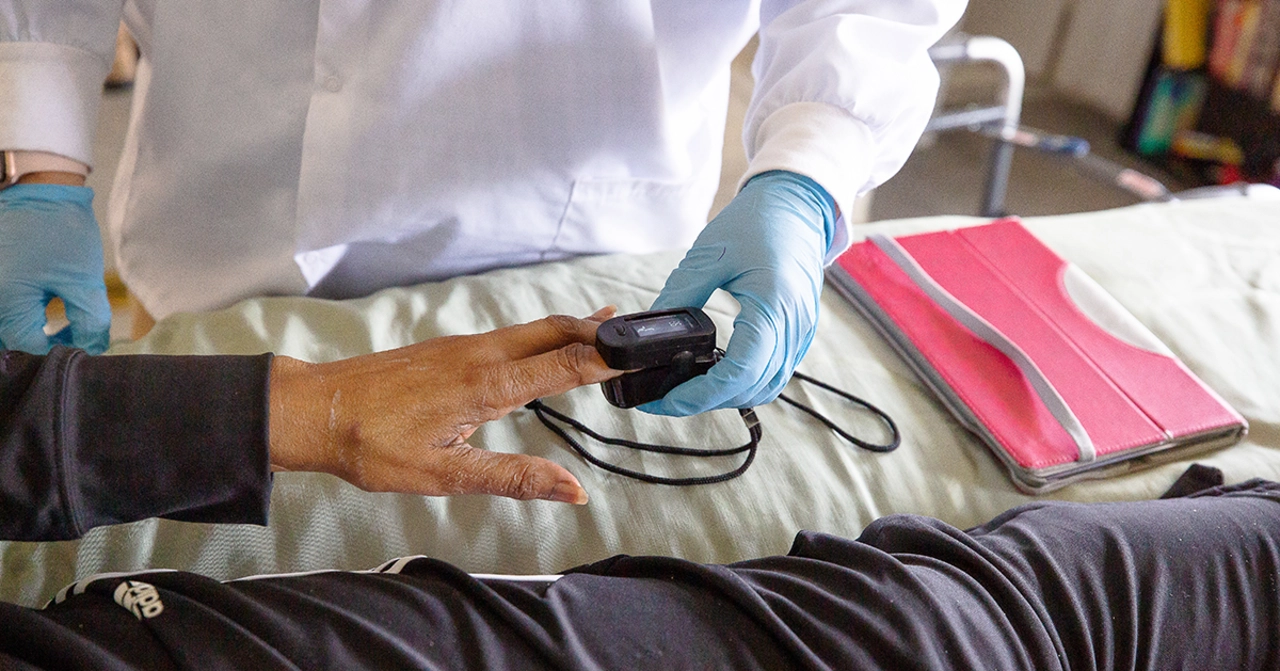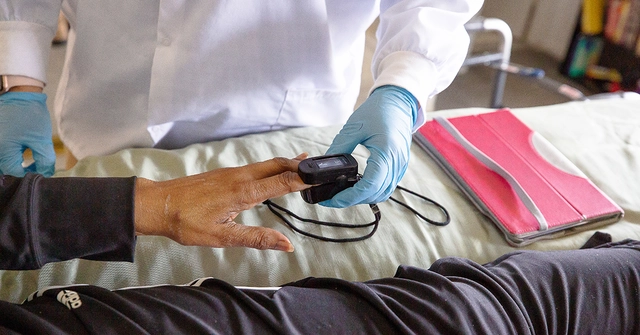Exploring the Differences Between Medical Care and Health Care
When it comes to healthcare, many people are unaware of the distinction between medical care and health care. Medical care is the direct care and treatment of a medical condition, whereas health care is the comprehensive approach to sustaining a person’s overall health. In this article, we will discuss the differences between medical care and health care in more detail.
Medical Care
Medical care typically refers to the diagnosis, treatment, and management of a medical condition or illness. This typically involves the use of medications, surgeries, and/or other therapies to treat the condition or illness. Medical care is typically provided by doctors, nurses, and other healthcare professionals in medical facilities such as hospitals and clinics.
Health Care
Health care is the comprehensive approach to sustaining a person’s overall health. This includes preventive care, nutrition and lifestyle management, disease prevention, and health promotion. Health care is typically provided by a variety of healthcare professionals such as doctors, nurses, nutritionists, physical therapists, and mental health professionals. Health care is typically provided in a variety of settings such as hospitals, clinics, and community health centers.
Differences
The primary difference between medical care and health care is the scope of services provided. Medical care focuses on the diagnosis, treatment, and management of a medical condition or illness, whereas health care focuses on the prevention and overall health and wellbeing of a person. Medical care is typically provided in a medical setting such as a hospital or clinic, while health care is typically provided in a variety of settings such as hospitals, clinics, and community health centers.
Conclusion
In conclusion, medical care and health care are two distinct types of care. Medical care focuses on the diagnosis, treatment, and management of a medical condition or illness, whereas health care focuses on the prevention and overall health and wellbeing of a person. Both types of care are important for maintaining good health and should be used together in order to achieve the best possible results.
Understanding the Scope of Medical Care and Health Care
Medical care and health care are terms that are often used interchangeably and while they both involve the health of an individual, they have some distinct differences. Understanding the scope of medical care and health care can help you decide which type of service is best for your needs.
Medical Care
Medical care is the treatment of an illness or injury that requires medical expertise. This includes diagnosis, treatment and management of illness or injury. Medical care is typically provided by a medical professional, such as a doctor, nurse, or physician-assistant. It can be in a hospital or clinic setting, or in the patient's home. Medical care typically involves a diagnosis and treatment plan, which may include medications, surgery, or other treatments. In some cases, medical care may also include counseling or psychological services.
Health Care
Health care is a broader term that encompasses the entire range of health-related services and activities. This includes preventive care, such as regular check-ups and screenings, as well as lifestyle changes to improve health. Health care also includes public health efforts, such as immunizations, health education, and disease prevention. In addition, health care includes mental health care, such as counseling, therapy, and support groups. Health care is not just about treating illness or injury; it is also about promoting overall health and well-being.
Difference Between Medical Care and Health Care
The primary difference between medical care and health care is the focus. Medical care is focused on the treatment of illness or injury and is typically provided by a medical professional, such as a doctor or nurse. Health care, on the other hand, is focused on preventing illness and promoting overall health and well-being. It involves the entire range of health-related activities, including preventive care, public health efforts, and mental health care. Both medical care and health care are important for maintaining good health, but they have different focuses and objectives.
Examining the Impact of Medical Care and Health Care on Society
Medical care and health care are two terms that are often used interchangeably, but there are distinct differences between the two. Medical care is focused on treating a specific illness or injury and is usually provided by doctors in a hospital or doctor's office. Health care, on the other hand, is a more holistic approach to managing one's overall health. It takes into account lifestyle, nutrition, exercise, and other factors that can affect one's physical, mental, and emotional health.
The impact of medical care and health care on society is far-reaching. By providing access to quality medical care, society is able to reduce the incidence of serious illnesses and injuries. This in turn reduces the burden on the healthcare system, as fewer people require costly treatments. Additionally, medical care can reduce the burden of chronic illnesses, as treatments can help manage conditions and maintain quality of life.
On the other hand, health care can have a more indirect impact on society. By providing access to preventive services and education, health care can help people make healthier lifestyle choices. This can reduce the incidence of certain diseases and illnesses, and help people to manage existing conditions more effectively. Health care can also help to reduce the burden of mental health issues, such as depression and anxiety, by providing access to counseling and other support services.
The impact of medical care and health care on society is clear. By providing access to quality medical care and health care, society is able to reduce the burden of serious illnesses and injuries, while also helping people make healthier lifestyle choices. This can lead to improved health outcomes for individuals, as well as a healthier, more productive society.
Comparing the Cost of Medical Care and Health Care
Medical care and health care are two terms that are often used interchangeably, but there are distinct differences between the two. Medical care is the provision of services by a medical professional such as a doctor, while health care is the overall care and management of a person's physical and mental wellbeing. Medical care focuses on the diagnosis and treatment of disease, while health care is more focused on the overall health and wellbeing of a person.
Cost of Medical Care
Medical care can be expensive and many people struggle to afford it. The cost of medical care depends on the type of treatment, the doctor's fees, the cost of medications, and the cost of any additional tests or procedures. In addition, many medical treatments require the patient to pay for any additional care or services, such as physical therapy or counseling. The cost of medical care can be difficult to manage and many people find themselves struggling financially as a result.
Cost of Health Care
The cost of health care, on the other hand, is much less expensive than medical care. Health care focuses more on preventative care and lifestyle changes, rather than simply treating illnesses and diseases. Health care also takes into account the overall wellbeing of a person, including their mental and emotional health. Health care is often less expensive than medical care because it typically involves fewer tests and procedures, fewer medications, and fewer office visits.
Which is More Cost Effective?
When it comes to cost effectiveness, medical care is typically more expensive than health care. However, there are some exceptions. For instance, if a patient has a chronic condition that requires frequent monitoring and treatment, medical care may be more cost effective than health care. Additionally, if a person has an acute illness or injury, medical care is typically the most cost effective option.
Conclusion
In conclusion, medical care and health care are two distinct terms with different costs. Medical care is typically more expensive than health care, but there are exceptions. Ultimately, the cost-effectiveness of medical care or health care will depend on the individual's health needs and the type of treatment they require.
Exploring the Benefits of Integrating Medical Care and Health Care
Medical care and health care are similar in that they both involve the diagnosis and treatment of illnesses and diseases. However, there are some key differences between the two that should be considered when discussing their integration. Health care is more focused on providing preventive services, while medical care is more focused on treating illnesses and diseases. Health care is typically provided by a wide range of professionals, including nurses, nutritionists, physical therapists, and social workers, while medical care is typically provided by physicians.
Integrating medical care and health care can provide a number of benefits. By combining the two, patients can receive a more comprehensive approach to their overall health. By providing both preventive and treatment services, patients can receive the care they need to maintain or improve their health. Additionally, integrating medical care and health care can improve communication between providers, leading to better coordination of care and more effective treatment plans.
Integrating medical care and health care can also help reduce costs. By providing services from a variety of providers, patients can receive the care they need at a lower cost than if they were to receive treatment from multiple providers. Additionally, integrating medical care and health care can lead to more efficient use of resources, resulting in better outcomes for patients.
Integrating medical care and health care can also lead to improved patient satisfaction. By providing a more comprehensive approach to care, patients can receive the treatment they need in a timely manner and in an environment that is conducive to their well-being. Additionally, patients may find that they have better access to providers, leading to more individualized care.
Ultimately, integrating medical care and health care can lead to improved health outcomes for patients. By combining preventive and treatment services, patients can receive the care they need to maintain or improve their health. Additionally, integrating medical care and health care can lead to improved communication between providers, cost savings, and improved patient satisfaction.


